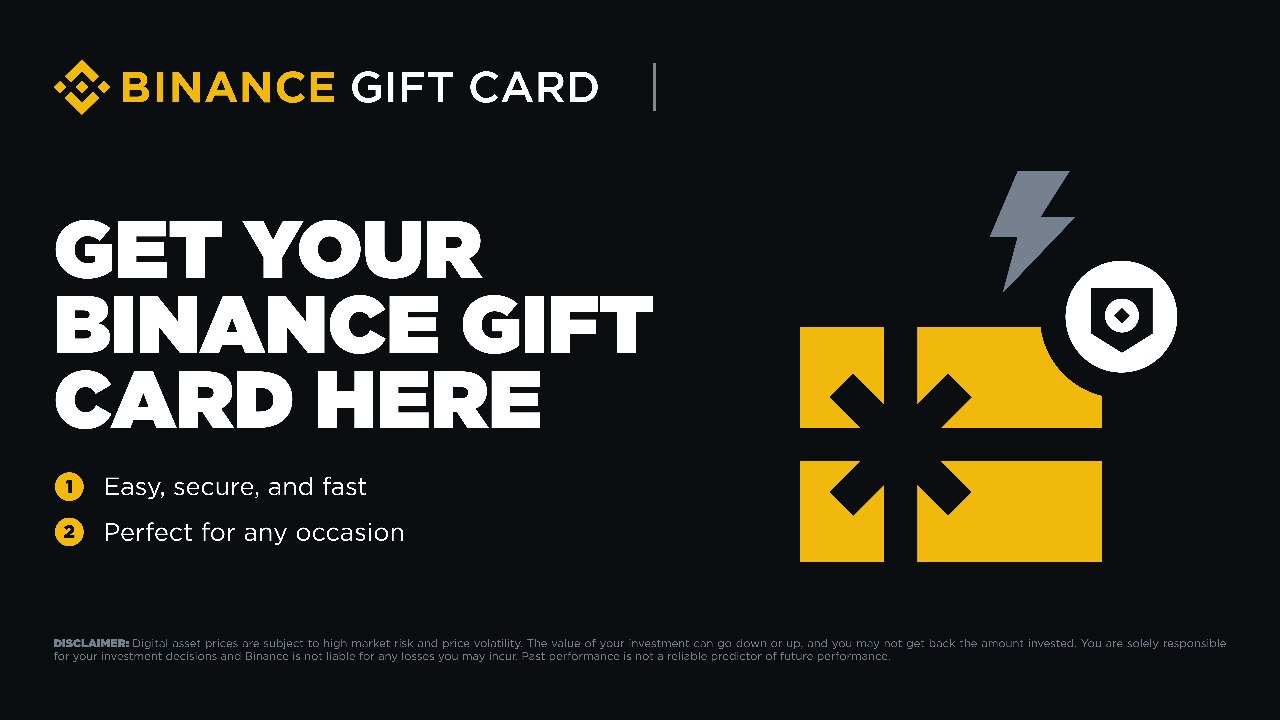If you are familiar with cryptocurrency taxation laws, you may have heard that Germany is a haven for crypto holders. But is that accurate? Read our comprehensive guide to obtain more information about Germany’s crypto tax structure and whether you’ll be forced to pay a big tax bill.
Which Crypto Taxes Apply in Germany?
Germany’s tax authority, the BZSt, does not treat Bitcoin and other forms of cryptocurrency as legal tender or e-money. Instead, they are viewed as intangible assets – at least, for taxation law purposes. Germany has a vague stance when it comes to their cryptocurrency taxation scheme – meaning that cryptoassets do not have their own set of regulations. The general tax procedures do apply, but the application can be somewhat problematic since it fails to take the novelty of cryptoassests into account.
That being said, how much Bitcoin tax in Germany should you expect to pay?
Income Tax
Unlike some countries, Germany doesn’t have any particular separate Capital Gains taxation policy. However, there are some conditions that require you to pay taxes on the gains received after disposing of assets. When private individuals purchase or sell cryptoassets, they will be held liable for paying Income Tax, as outlined throughout the German Income Tax Act (Section 22 and 23, #2). Cryptocurrency is classified under the label of “other assets” and selling it is “private disposal.” According to the first section of Section 23 (3), a loss or a gain is the difference between the selling price and the purchasing price. Fees are included in the purchasing price, meaning that you can deduct exchange trading fines.
We have good news, though! The 5th sentence of Section 23 (3) outlines an exemption that you can take advantage of. All private disposals have a tax-free cap of 600 euros. But, if you exceed that amount, then taxation will be applicable to the entire sum.
If you go over the 600 EUR tax-free threshold, then you will have to pay tax on exchanging crypto into fiat currency, exchanging it for other forms of crypto, and for using it to purchase services and products. If you are trying to minimize the amount of tax you have to pay on cryptocurrency transactions, then we would highly recommend keeping your disposals under the 600 EUR mark.
How Is Mining Taxed?
The answer to this question depends on whether commercial mining is taking place (the other option could be private mining). When Parliament brought up this topic, Germany’s federal government declared that private mining earnings will fall under the “other income” category as per the German Income Tax Act’s Section 22(3). However, the government did not clarify if the transaction fines alone are taxed or if the reward of the block is taxed as well. Some German tax experts and lawyers argue that private mining should not be taxed, as a service isn’t being given.
Masternode Taxation
A masternode has a managing role and unique functions that regular nodes (computing devices) on a blockchain aren’t capable of. masternodes can create immediate transactions and private transactions, in addition to voting on system proposals. When considering masternode taxation, we once more need to separate activities into private and commercial classifications. The lower threshold of commercial activity is quite low, so your income from using a masternode may very well be taxable. Taxation on private masternode activities has not yet been outlined by the German tax authorities.
Private Sales Taxation – Holding
Because cryptocurrency falls under Germany’s general tax laws, we can apply Section 23 (1.2) to holds. If you hold cryptocurrency for at least one year, you won’t have to pay a private sales tax! This is much more favorable than in other countries – the UK, for instance, requires you to hold the cryptocurrency for three years if you want to be exempt from the private sales tax.
How Does Germany Tax Businesses for Cryptocurrency Activities?
So far, we have covered crypto taxes for private holders. But how much bitcoin tax in Germany do tax businesses have to pay?
It comes down to whether a company is a partnership, and LLC, a public company, or some other corporate entity. Only partnerships are exempt from paying corporate taxes – instead, they are taxed the same way that individuals are taxed.
Commercial companies can’t carry out private sales. Instead, their crypto transactions are included in their business assets, since they typically lead to business earnings. For commercial companies, the 1-year period for holding assets does not apply.
Differences Between Individual and Business Crypto Tax in Germany
The primary difference is that individuals are exempt from paying tax if they hold crypto for more than a year. You can use this to your advantage to avoid paying tax on your crypto holdings – without resorting to any illegal measures.
So, let’s run through a scenario in which an individual (but not a business) could use the 1-year policy to their advantage. Let’s say that on January 1st, 2017, you spent $1,000 to purchase 1 BTC. If you then decided to spend it on December 15th, 2017, you would have made $17,000 – and then had to pay German income tax on the $16,000 of profit. If you sold it on January 2nd, 2018, on the other hand, you would not have to pay any income tax at all! The larger your crypto portfolio is, the more you stand to gain from holding your assets – even if the market temporarily pulls back.
German Crypto Taxation FAQs
What about VAT?
Germany adds a Value Added Tax (VAT) of 19% to the total amount paid for the merchandise. However, according to section 4.8 in the German VAT legislation, cryptocurrency trading is not subject to VAT. This includes crypto to fiat, crypto to crypto, and crypto for goods and services. Furthermore, mining activities are not subject to VAT in Germany, as miners aren’t acting in a mutual exchange framework.
What other countries have advantageous cryptocurrency taxation policies?
Some countries that have lax cryptocurrency tax procedures are Switzerland, Malta, Belarus, Slovenia, Malaysia, Singapore, and Portugal.
How can I start exchanging cryptocurrency?
There are a number of excellent exchange services available on the web. But if you are new to cryptocurrency, we would highly suggest going with a service that is user-intuitive and comes with a mobile application. Our personal recommendation is Trastra. We’ll give you some information about the service, so you can decide for yourself if it meets your needs.
Trastra Overview – What Is It and Why Should You Trust It?
Trastra can be your own unique blockchain banking service, accessible from your pocket. The platform combines the decentralized benefits of Bitcoin, Litecoin, Ripple, Ethereum, and Bitcoin Cash with the infrastructure of conventional payments.
Trastra lets its users create five different crypto e-wallets. What’s more, it gives them access to a feature-rich banking app and a VISA debit card. You can use Trastra’s web app to fill up your crypto card and send and receive money across the world. You can also use your Trastra VISA Payment Card to spend crypto as cash and withdraw money from ATMs.
Trastra promises its clients immediate support, top-notch security measures, and stable user experience. The London-based company has over 10 years of experience in developing banking services. With Trastra, the future of cryptocurrencies is accessible to everybody!
So, how can Trastra help lower Bitcoin tax in Germany? Well, remember – if you hold your cryptoassets for more than one year, you are totally exempt from shelling out income tax on the gains. So, you can use the app to hold your crypto while waiting for the 1-year time period to expire. Then, use the payment card to spend it as fiat money, or exchange it for a different form of crypto, if you prefer.
You also don’t have to pay income tax on private disposals that are under 600 EUR. You can use the app to make small disposals like this.
Trastra Payment Card
One of the most innovative features of Trastra is its Payment Card. It’s a VISA-powered, plastic card that gives you security, control, and convenience when making purchases. The card draws funds straight from your Trastra accounts. So, what are its benefits?
- It is simply to use; just swipe it!
- It works internationally, both online and offline.
- You can convert funds to EUR using the app, thus topping up the card instantly.
- Cash out your funds no matter where you are
Currently, residents of 31 EEA countries can have the Trastra VISA card delivered.
|
|
If your country isn’t on the list, though, there is still good news! According to Trastra’s website, they are working on making the card delivery and other services available worldwide. Sign up for Trastra’s newsletter to receive updates when they launch in new countries.
There are some fees and limits associated with the Trastra VISA card, but they are fair and transparent.
|
Card Fees |
|
| Crypto Exchange / Card load fee | €0.00 |
| Offline card purchase (€) | €0.00 |
| Online card purchase (€) | €0.00 |
| Non-Euro card purchase (online, offline) | 3% of transaction value |
| Internal Card to Card transfers | €0.20 |
| ATM Balance Inquiry | €0.35 |
| ATM PIN Change | €0.40 |
| ATM € withdrawal | €2.25 |
| ATM withdrawal non-€ or outside European Economic Area | €2.25 + 3% |
|
Card Limits |
|
| Maximum card balance limit | €8,000.00 |
| Daily Spend limit | €7,700.00 |
| Daily ATM withdrawal limit | €300.00 |
| Overall Daily spend limit | €8,000.00 |
Trastra users can have two cards at one time – one can be used for USD, and the other can be used for EUR. After ordering a Trastra payment card, delivery will take 7-10 shipping days.
Trastra Wallets
With Trastra, you can open multiple wallets that hold crypto – one for each of the five types of cryptocurrency that the platform supports. When you’re in the wallet section of the website, it will look like this:
If you are unfamiliar with the manner in which digital wallets operate, we’ll give you some information. Digital wallets, or e-wallets, are virtual places where you can store cryptocurrency. However, instead of storing actual money, a crypto wallet will store private keys. A digital wallet has two separate elements – a public address and a unique, private key. The public digital address is how other people send and request money to and from your crypto wallet. Your unique, private key is used as a password, and you must protect it. With Trastra multiple cryptocurrency digital wallets, you will use your private key as your account password. The public address will look like a string of numbers and letters, which you can either copy to your clipboard or scan a QR code.
There are many benefits to using TRASTRA multiple crypto digital wallets. To name a few:
- Security. The Trastra app uses a 2-Factor Authentication protocol, confirmation emails, and encrypted data to keep your account information completely safe.
- Control. By choosing the mining fee, you have control over how fast you want your crypto transaction to be completed. You can choose between a low, regular, or high speed.
- Quick Conversions. With just a few clicks, you can convert your cryptocurrency to fiat money – and then cash it out.
Get Started Today
Now that we’ve outlined the benefits of using Trastra and the ways that it can help you reduce the amount of German income tax you owe, are you ready to sign up for an account? If your answer is yes, consider using our sign up link. We have partnered with Trastra in order to provide you with ideal benefits. If you use our link, these benefits will be available to you:
- Complimentary Trastra VISA Card
- Get a card with no existing bank account
- Fee-exempt transfer of crypto to card
- Fee-exempt EUR purchases with VISA card
- ATM withdrawal charge of only 2.25 EUR
- 300 EUR ATM daily withdrawal limit
Do you have any questions about Germany’s cryptocurrency tax or Trastra? If so, leave a comment for us.





This is fascinating, i have heard that Germany is a “tax haven” for crypto but I didn’t relaize just how favorble the terms are. anwyays, I live in Poland, kind of close to the border of Germany, but it doesn’t matter how close I am since I am polish citizen, not German. But I was wondering if there is any way possible to take advantage of the more relaxed Germany bitcoin tax laws even though I don’t live there? Do you have any ideaS?
Angelusrex, thank you for your interesting question! According to KPMG article (https://home.kpmg/xx/en/home/insights/2014/04/germany-thinking-beyond-borders.html), anyone can become a tax resident in Germany after living in the country for more than 6 months. Another way to obtain this status is to purchase housing in Germany. But before making this decision, you should consider all other taxes and compare their amount with the Polish ones. The overall picture may not be as appealing.
You said that trastra is delivering to other countrys soon, you do know if they will send cards to Bangladesh?
Sharmin, thank you for your question! At the moment we have no information about countries where Trastra will start to send new cards in the first place. But as soon as we know something for sure, we will definitely make a blog post.
When filing the tax form after holding for more than one year, do you have to disclose your sale on the tax form somewhere?
What are the time lines and chances for having to proof you were holding for more than one year?
Chad, thank you for your question! The legislation establishes that if less than 1 year has passed from the moment of purchase to the sale of the cryptocurrency, then the sale transaction is subject to income tax. Accordingly, if more than a year has passed, then this asset should not be taxed. In addition, there is a tax-free minimum of 600 euros.
However, we recommend you also to seek the advice of a professional tax collector or lawyer, as the legislation may already change.
Does Trastra charge the inactivity fees if you don’t use the account for long time? I want to use it to hold some of my bitcoin but I also don’t wnt to have to pay fines.
Lars, thank you for your question! The case is that we don’t have clear information if Trastra charges inactivity fees. We suppose Trastra doesn’t charge any. However, there is Trastra VISA card monthly management fee 1,25 EUR that charges card holder from his Trastra crypto wallet.
huh, and I couldn’t find anything on the trastra website bout inactivity fees either. I sent email to customer service and am waiting to hear back. the monthly management fee doesn’t sound too bad, 1,25 eur is basically nothin.
Lars, contacting support is always a great solution. In Trastra, it works quite quickly, you probably already received an answer. We will be grateful if you share the information you received with us 🙂
Thanks. I already got email from Trastra customer service, they said that Trastra doesn’t charge inactivity fees at all, neither for trastra wallets nor trastra card accounts.